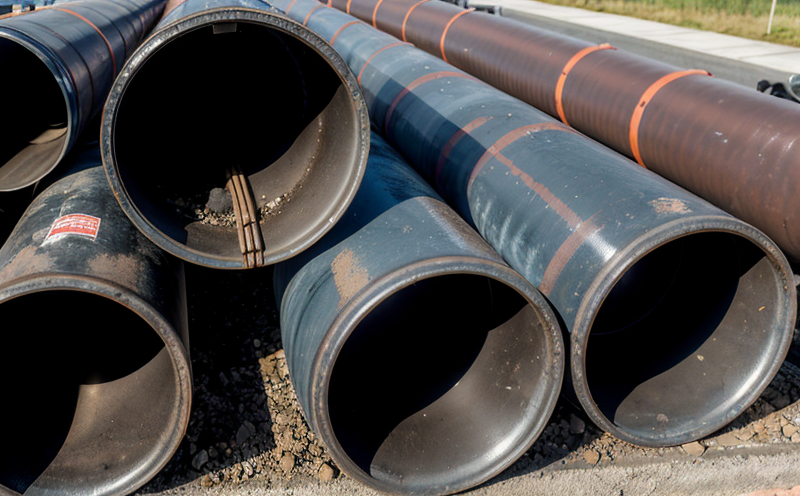ISO 13479 Resistance to Crack Propagation Testing of Plastic Pipes
The ISO 13479 test is designed to evaluate the resistance to crack propagation in plastic pipes, a critical factor for ensuring durability and safety in various applications. This standard is widely recognized within sectors such as construction, utilities, and infrastructure where long-term performance under mechanical stress is essential.
Crack propagation testing involves inducing an initial flaw or notch on the pipe specimen and then observing its behavior when subjected to cyclic loading. The test measures how far cracks grow before they reach a critical size that could lead to failure. This information is crucial for optimizing design, selecting appropriate materials, and ensuring compliance with safety regulations.
The process begins by carefully preparing the specimens according to ISO 13479 guidelines. Specimens are typically cut from pipes of specific dimensions relevant to the intended application. After preparation, notches are introduced using a controlled procedure to simulate real-world stress concentrations.
Testing is conducted in a laboratory setting using specialized equipment designed to apply cyclic loads that mimic operational conditions. The apparatus includes a testing machine capable of precise control over load and displacement, along with monitoring systems to track crack growth accurately. Throughout the test, data on crack length and propagation rate are recorded.
Results from ISO 13479 tests provide valuable insights into material performance under cyclic loading conditions. These results can inform decisions about selecting appropriate materials for new projects or modifying existing designs to enhance reliability. Compliance with this standard is mandatory in many regulated industries, ensuring that products meet stringent quality and safety standards.
By adhering to ISO 13479, manufacturers demonstrate their commitment to producing high-quality products that can withstand harsh environments over extended periods. This not only enhances product lifespan but also contributes significantly towards reducing waste generation associated with premature failure.
Applied Standards
| Standard Name | Description |
|---|---|
| ISO 13479:2018 | Resistance to crack propagation testing of plastic pipes. |
| ASTM D562 | Circular specimens for determining tensile properties. |
Scope and Methodology
The scope of ISO 13479 covers the resistance to crack propagation testing specifically applicable to plastic pipes. The methodology involves creating a controlled environment where cyclic loading is applied to induce cracks on specimens, followed by detailed observation and measurement of how these cracks grow over time.
Specimens are typically prepared from standard-sized plastic pipes, ensuring uniformity across tests for accurate comparative analysis. Notches or flaws are introduced using precise methods to simulate actual stress points likely encountered during use. Cyclic loading is then applied through a testing machine capable of maintaining consistent parameters throughout the test duration.
During the test, continuous monitoring ensures that even subtle changes in crack length and propagation rates are captured accurately. Data collected includes both quantitative measures like maximum crack length achieved before failure, as well as qualitative observations about crack morphology and patterns developed during testing.
Benefits
- Enhanced product reliability through rigorous quality assurance.
- Informed decision-making based on scientifically validated test results.
- Mandated compliance with international safety standards.
- Potential cost savings due to reduced material wastage and extended service life.





